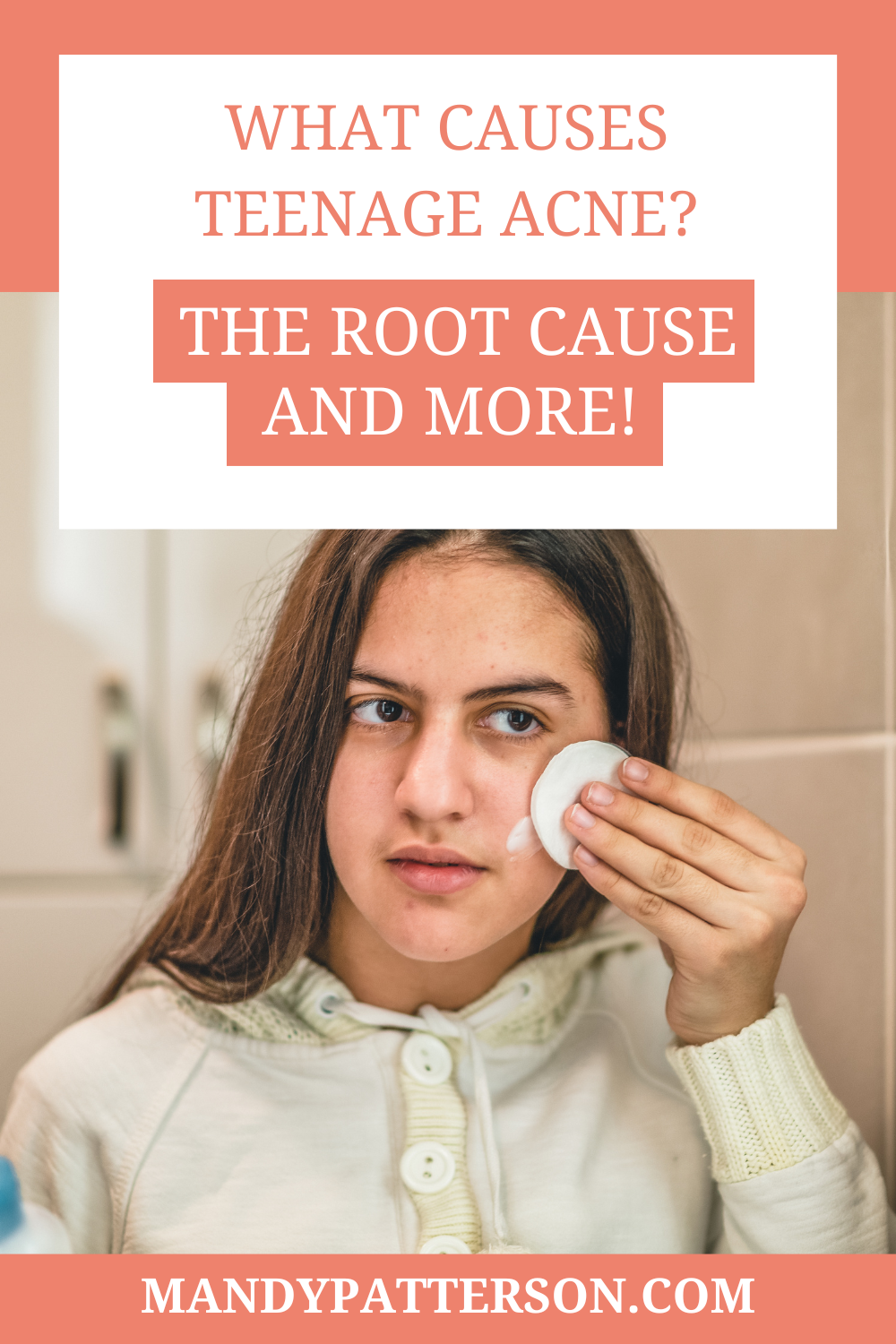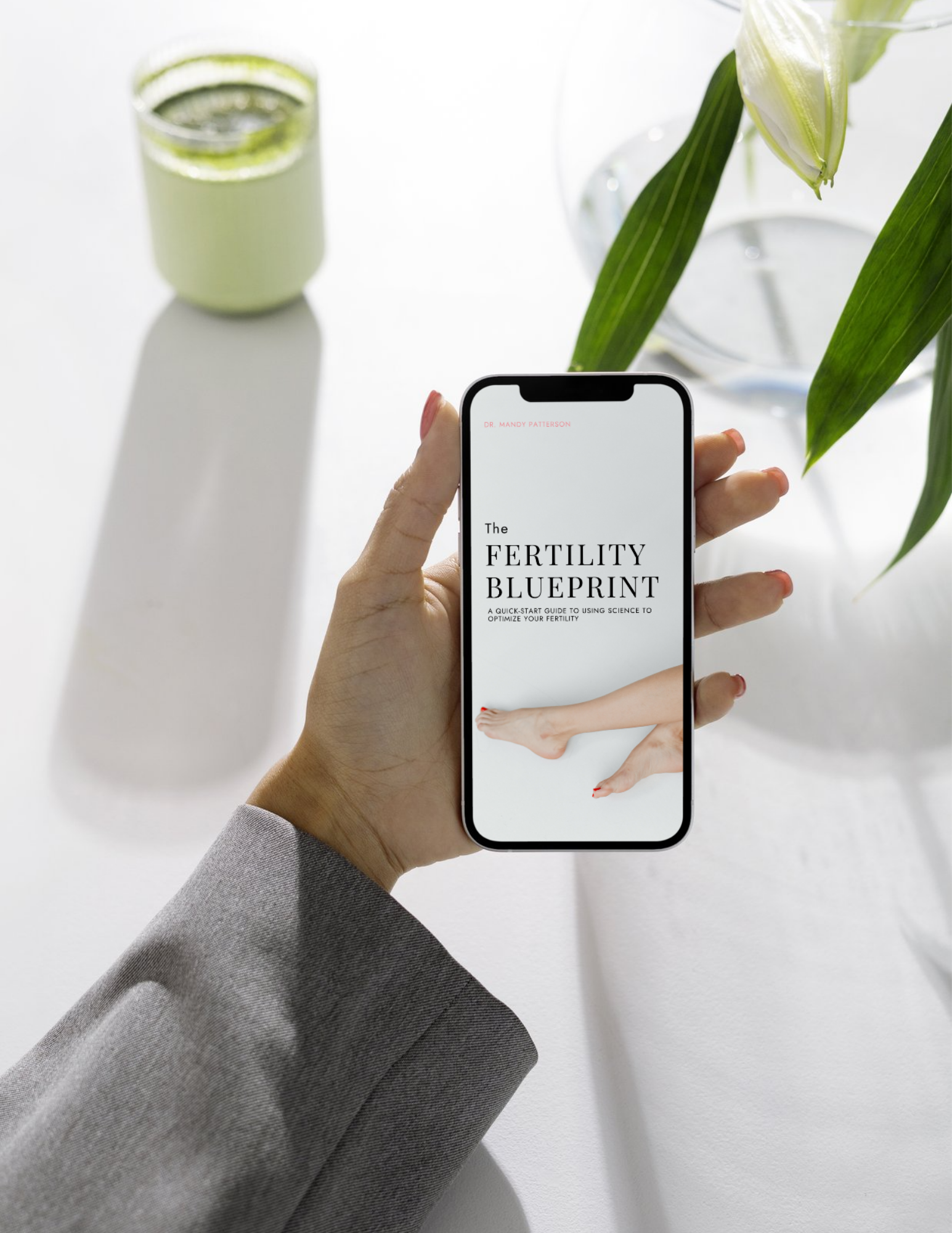Wondering what causes teenage acne? Acne is caused by hormones and heredity for everyone, not just teenagers. However, your environment can have a huge impact on how both hormones and heredity interact to cause acne. Unfortunately for teenagers, acne can be a major concern impacting their self-esteem and causing stress and anxiety.
Not to mention many conventional medications for treating acne have unwanted side effects and can make skin worse in the long run.
This article will delve a little deeper into the root cause of teenage acne. You’ll learn how to manage acne from a holistic, natural perspective by addressing underlying factors that lead to acne breakouts in teenagers.
What Causes Teenage Acne?
The hair follicles, or pores, in your skin contain sebaceous glands. These make oil that lubricates your hair and skin called sebum. Most of the time, the sebaceous glands make the right amount of sebum.
However, as boys and girls go through puberty, their body matures and changes. Ultimately, fluctuating hormones stimulate the sebaceous glands to make more sebum.
Until the hormone and sebum levels balance, it can lead to breakouts and acne.
Pores can become clogged if there is too much sebum and too many dead skin cells. Bacteria can then get trapped inside the pores and multiply. This causes swelling and redness, or the start of acne.
There are four types of ways a pore can develop acne:
- A pore that gets clogged, closes, and bulges out from the skin is a whitehead.
- A pore that gets clogged but stays open, with a darker top surface, is a blackhead.
- If the wall of a pore opens and lets sebum, bacteria, and dead skin cells make their way under the skin, it can cause a small red bump called a pimple.
- A clogged pore that opens up very deep in the skin can cause nodules.
Is Teenage Acne Normal?
You may be wondering if being a teenager is characterized by acne breakouts. While the western world may think that is the case, research suggests otherwise.
For example, one study looked at acne in traditional populations. Researchers examined two groups, one from Papua New Guinea and one from Paraguay. The study was completed over a 27-month long period but found zero cases of acne in the youth.
This research demonstrates that while hormones drive acne, they aren’t the root cause. What’s more, traditional diets that are rich in fiber and whole foods protect against acne.
The answer to what causes teenage acne can’t be as simplistic as hormones. The real answer lies in why our teenager’s hormones are fluctuating so greatly. While growth is one factor, diet, and lifestyle also play a role.
How to Use Food To Manage Acne in Teenagers
A quick google search on severe acne in the teenage years will lead you to believe that the only solution is getting on birth control or Accutane. Most conventional medical professionals will say that there is no benefit in using nutrients or changing the diet to manage acne.
Interestingly, we know that diet can affect the production and secretion of hormones by direct actions on the gut, by nervous system reflexes, through changes in the concentration of various metabolites in the blood, or secondary to changes in circulating gut hormone levels. We also know that diet plays a key role in inflammation.
Consider this: when we know that hormonal imbalances are what causes teenage acne, why then do we not treat those fluctuations?
By reducing the foods that contribute to hormone imbalances and improving nutrient levels, we can help our teens to get a handle on their acne.
Foods to Avoid
Sugar
Increased androgen hormones in teenagers also cause another hormone called insulin to rise. Insulin helps to stabilize blood sugar levels by storing excess glucose away in the cells.
When we add sugar and refined carbohydrates into the diet, this drives insulin levels even higher.
This is a problem for teenagers with acne because high insulin increases sebum production and inflammation, leading to acne.
Unfortunately, the average teenage diet is pretty high in sugar and processed foods. But the good news is that teens are often willing to make some changes if it means clearing up their skin!
Dairy
Another problematic food for acne is dairy. For many teenagers, reducing or even cutting out dairy can help to clear skin within a few months.
Here’s why dairy is a problem. First, it has a high glycaemic load (GL). High glycemic diets are not good for the skin as it spikes insulin levels.
Second, there is a type of protein in most dairy products that cause an inflammatory response in many people. This protein increases inflammation and contributes to high sebum levels.
Nutrients for Teenage Acne
Zinc
Zinc helps support a healthy balance of hormones, decrease excess androgens, reduce inflammation, support healthy skin, and aid in immunity and healing of affected skin.
Omega-3’s
Omega-3s are essential fatty acids that are found mostly in fish and seafood. They help with acne by reducing inflammation, supporting overall skin health, and encouraging a diverse and healthy gut microbiome.
A Note on Gut Health and Teenage Acne
Gut health is critical for your overall health and wellness. Further, the gut is our biggest organ of elimination. If it is not working effectively, this can put pressure on our other detoxification organs, including the skin.
Leaky gut and gut dysbiosis, or imbalances of the gut flora, are two gut health concerns that go hand in hand. Together, they can exacerbate and even lead to acne development.
Both of these are multi-faceted conditions, but some of the common causes include antibiotic use, a processed and high-sugar diet, and a lack of fiber.
Combined with the hormonal fluctuations, it’s easy to see why teens are so prone to poor gut health and skin issues!
Work with a Fertility Health Coach
As a fertility health coach and mom of six (yes, I said six!), I understand fluctuating hormones and hormone imbalances. If you are struggling with hormone issues and want to take a holistic approach to get your health back in order, reach out to me! Heck, you may be struggling with acne just as much as your teen! If learning what causes teenage acne came as a surprise to you, schedule a consultation, and let’s talk about root cause wellness!


















